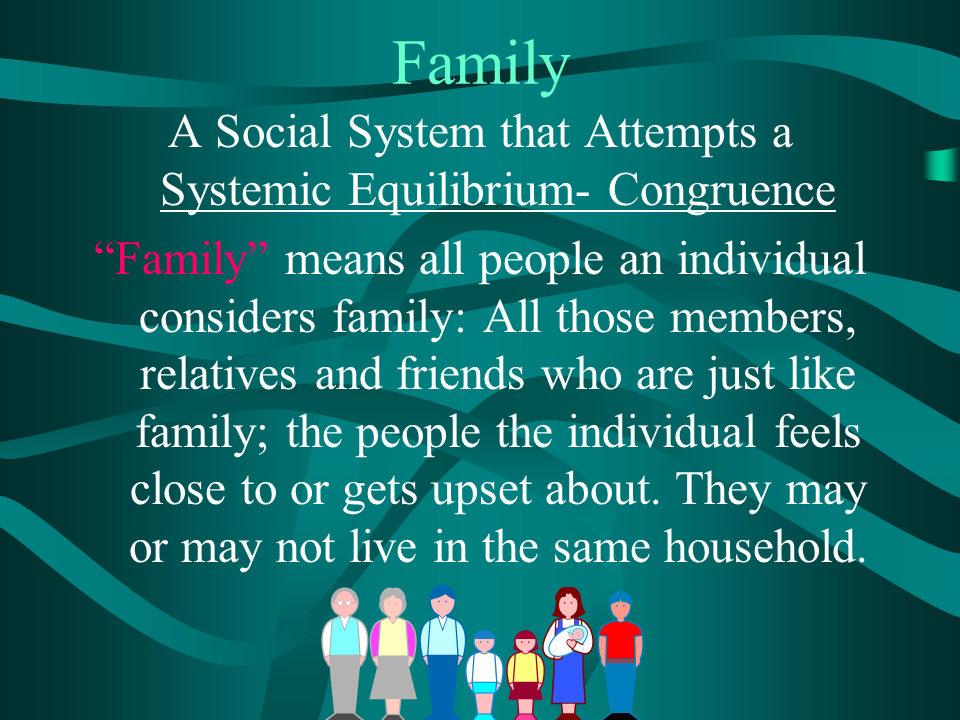- Family
Definition
The family is a unit with structure and organization that interacts with its environment.
It is a social system with interpersonal subsystems of dyads, triads, and larger units defined by emotional bonds and common responsibilities.
The family is composed of individuals who each have distinct relationships with other family members, the total family, and contact systems in the environment. Members of the family do not need to be biologically related or live in a single household. The family is defined as all persons an individual considers to be family. The family includes all persons who carry family functions and are emotionally connected to the individual in focus. Consequently, the persons who are emotionally connected are those the individual is concerned, worried, or upset about.
Propositions - Family
- The family, embedded in the civil system, is transmitting culture- the total of human system patterns and values.
- The family shares with the civil system and the environment at large the responsibility to provide physical necessities and safety, procreate, teach social skills to its members, provide for personal growth and development, allow emotional bonding of members, and provide a purpose for life and meaning through spirituality (See Systemic Process, The Targets, Spirituality).
- The family satisfies its members' needs for control over their environment and guides them in finding their place in the network of systems through spirituality.
- All family processes include collectively accepted and coordinated behaviors or strategies that aim at regulating the earthly conditions of space, time, energy, and matter in pursuing the daily functions.


 English
English  Español/Portugués
Español/Portugués  Deutsch
Deutsch 